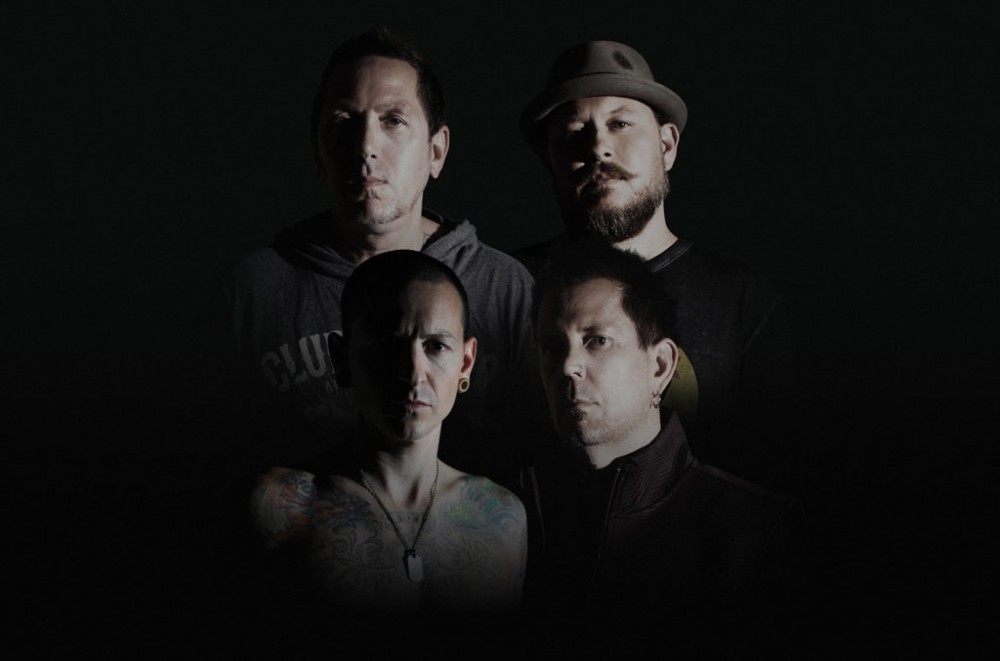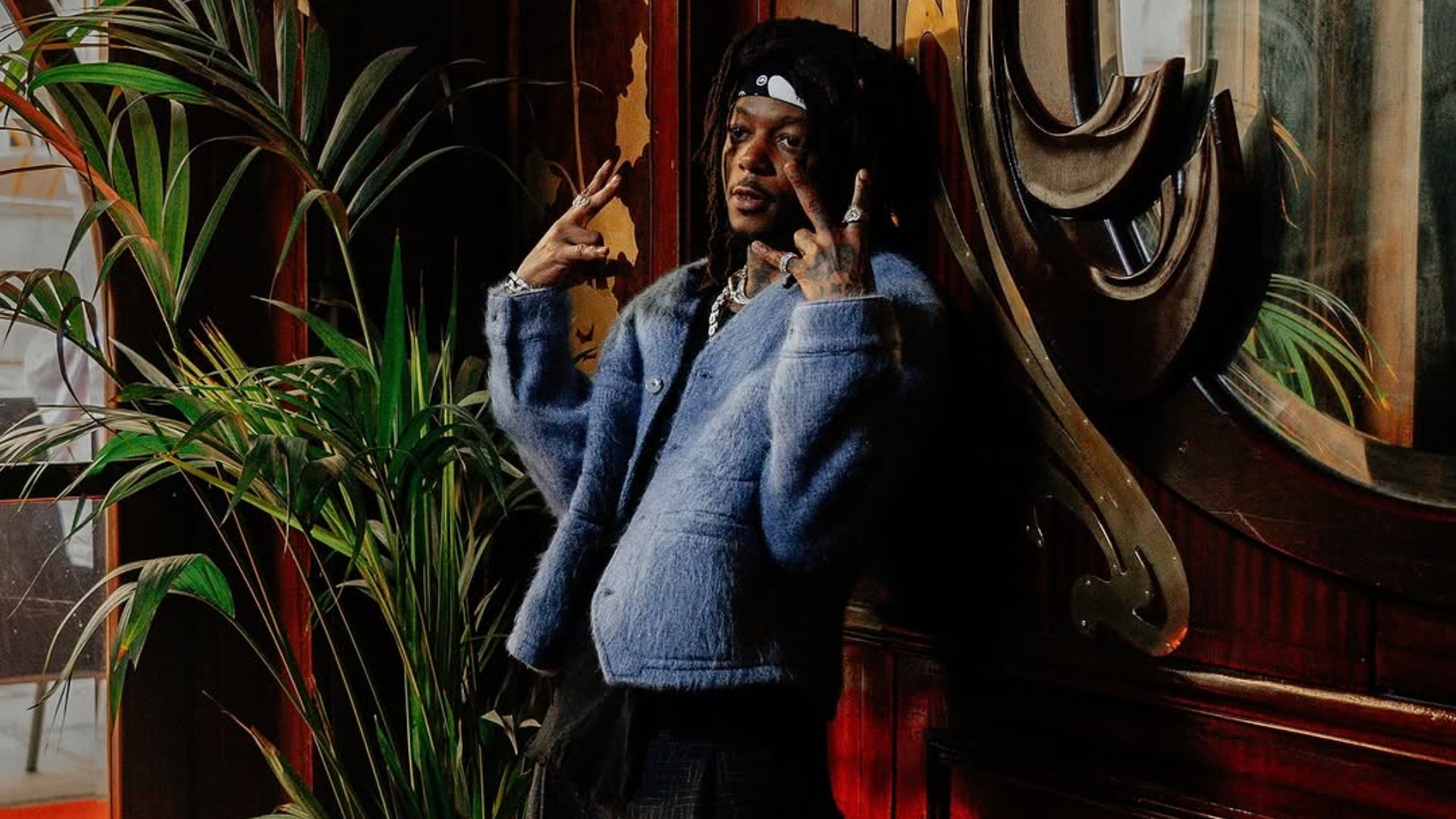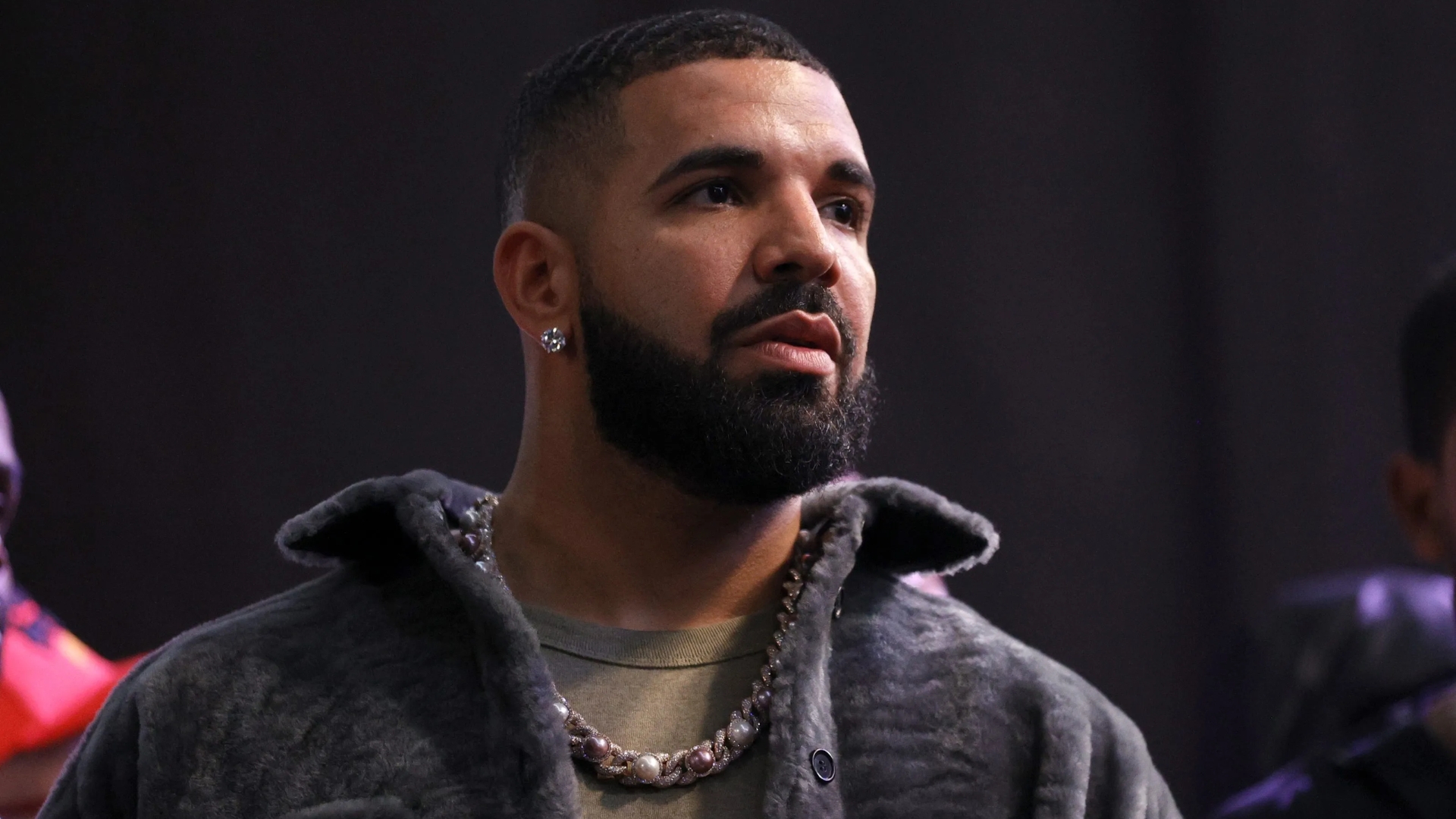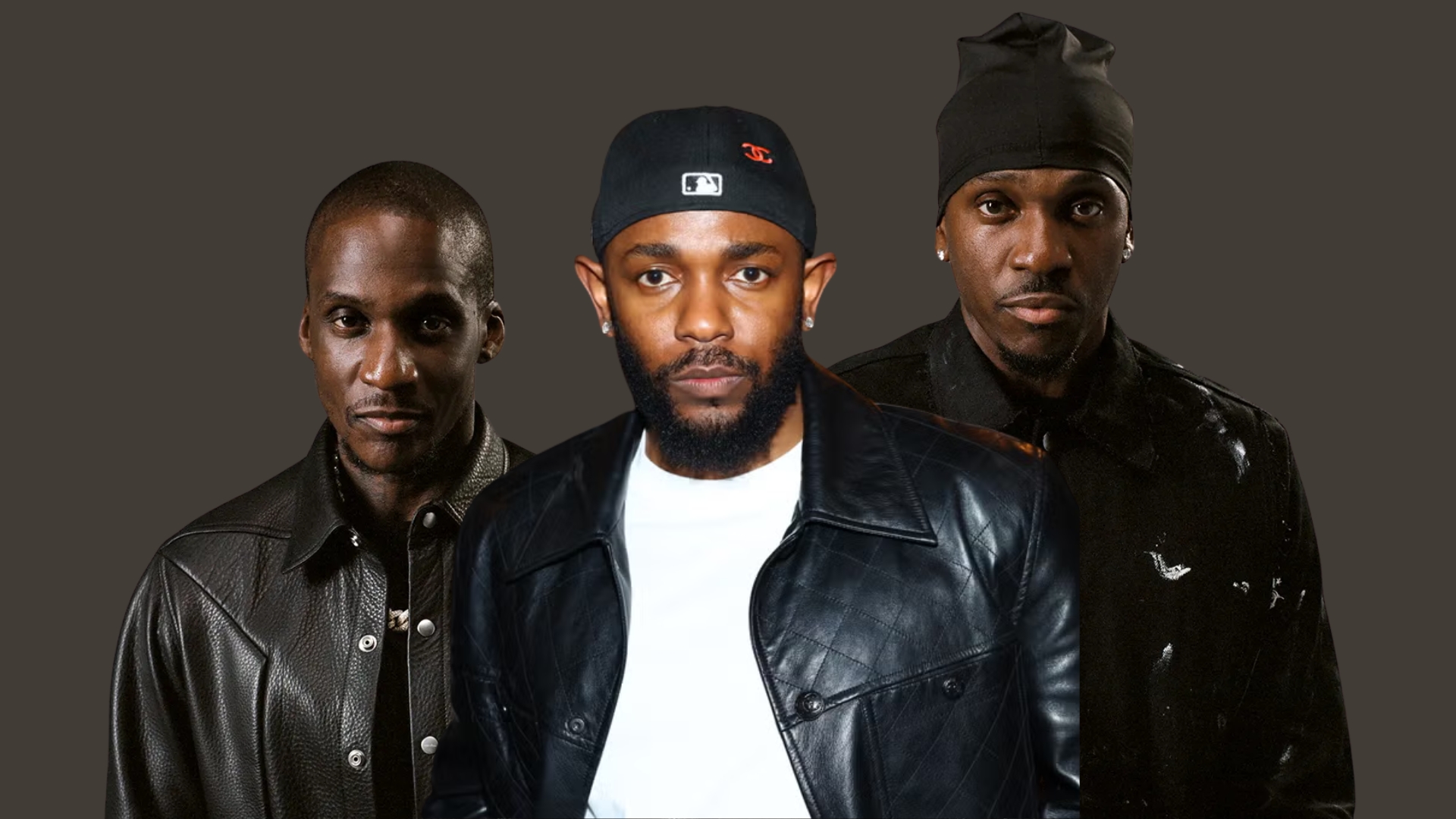The fourth installment of the behind-the-scenes documentary 'Making Amends' is premiering on Billboard.com today.
Back in October 2016, Chester Bennington and Sean Dowdell, his partner in the Club Tattoo franchise, decided to put their old band, Grey Daze, back together to perform at a Club Tattoo party in Phoenix.
They had started to rerecord some music from the two albums they had created during the ’90s before Bennington joined Linkin Park — but then Bennington died of suicide on July 20, 2017, at the age of 41. Understandably floored, Dowdell — who first met Bennington when they were both teenagers — put the Grey Daze project on hold.
But eight months later, he picked it up again, and the result is Amends, an album featuring 11 songs with new instrumentation and Bennington’s original vocals. The group members (drummer Dowdell, guitarist Jason Barnes and bassist Mace Beyers) are joined by multiple guests, including Korn’s Brian “Head” Welch and James “Munky” Shaffer, Helmet’s Page Hamilton, Bush’s Chris Traynor, Breaking Benjamin’s Jasen Rauch, Bennington’s Dead by Sunrise bandmate Ryan Shuck and, on the track “Soul Song,” his 23-year-old son Jaime Bennington.
The project (which has the blessing of Bennington’s widow, Talinda, as well as Linkin Park) comes out April 10 on Loma Vista Recordings. It is preceded by the January single “What’s in the Eye,” as well as by an eight-episode video documentary, Making Amends, about the band and how the album came together.
Dowdell spoke to Billboard about Bennington and Grey Daze, and particularly about remembering his friend and partner in music and business.
Amends is a bittersweet endeavor, isn’t it?
The only bitter part comes from not being able to share it with my friend. Chester and I have a very special friendship, and it was a dream of his to try to make sure that we got to put this music out there, so the bitter part is he’s not here to share this with us. But the sweet part is that we took nearly three years to finish it and we finally got it done, and I think he would be very proud of what we accomplished. I think he would be very happy with the music.
You already had started recording when he died. Did you think about scrapping it entirely?
It was six, eight months after Chester passed away before I picked it up again. It just kept gnawing at me every day: “You have to finish this music! You have to finish it!” I had no delusions of grandeur; I was going to pay for it and get it done, and that would be that. We would just put it out on iTunes or whatever, and that way people could hear what our music was like. Once we started working on it again, we decided we basically needed to start over and strip all these songs down and start from scratch. So we isolated Bennington’s] vocal tracks and created literally a cappella songs out of it and then wrote the music around his vocal tracks. There are two tracks that are pretty similar to the way they used to sound, but the other nine songs sound completely different than the original version, other than the vocal. They still have that original rock aggression Grey Daze was known for, and that big, dark mood of the band is still there. But they sound more modernized and relevant, if that makes sense.
What was it like, emotionally, to be working with Chester’s voice blasting back out at you?
For the first four months, man, it was tough. There were a lot of tears shed in the studio, a lot of hugs among band members. But then it started to become healing and then it started to become a mission about him and wanting to do right by our friend — “OK, what would Chester like? How would he have wanted to approach this?” We really had to do some soul-searching to make sure the integrity of what we were doing was there the whole time. And then we would find ourselves smiling after a few months and proud of ourselves, like, “Chester would be really stoked to be listening to this right now. I think we knocked it out of the park.”
Watch the fourth segment of the documentary, which is exclusively premiering on Billboard.com today, below:
Did you ever resent his departure from Grey Daze and success with Linkin Park?
Not a bit, and that’s a great question. When Grey Daze broke up, we had a huge fight, and Chester and I didn’t speak for almost two years. Our attorney plugged him into this band out in L.A. that became Linkin Park, and the rest is history. I remember getting Linkin Park’s] demo CD; I owned a studio back in the day, and the labels would send me big boxes of CDs to ask my opinion. I remember putting it on, and I took it home to my wife and said, “This is going to be huge.” His talent just went up another level, and the band was great, and I was so proud of him. Really.
How did you reconcile?
After Linkin Park’s first record hit, we found out our first Grey Daze] guitar player Bobby Benish] had developed brain cancer, and Chester called me out of the blue and said, “Hey, man, I heard … and it just got me thinking. You’re one of my best friends in the world, and I miss you.” I said, “I miss you too, man, and I’m so proud of you,” and that was that.
There are some interesting guests on Amends. How did they come to be on it?
It started with Head from Korn, and after that, I started talking to the rest of the band and said, “Y’know, there’s a lot of people out there that Chester admired and loved and would have loved to have been able to play with if he had gotten a chance.” This wasn’t about trying to keep Grey Daze] the way it was. It was, like I said, a mission and kind of this journey to try to connect come dots that Chester left unconnected in his lifetime.
So it was really about connecting the friendships. We had a lot of people asking if they could play on the record, but if it didn’t make sense, we just turned it down. We didn’t want it to seem exploitative in that sense.
Having Jaime on “Soul Song” is certainly a moment.
That was something I felt like we could give back to Chester, ’cause he had never gotten to record anything with his kids, and that’s something I thought that if he had been alive he would have wanted to do. I think Chester would have found that to be very special to sing with his kid.
Did this project give you any kind of new perspective on this old music?
One hundred percent, man. These words take on a whole new meaning now… It’s almost like he’s apologizing for his future actions. That’s really how we came up with the album name. It’s a lyric Chester and I wrote in “Morei Sky,” and the chorus says, “If I had a second chance I’d make amends.” That just seemed to sum up the entire project, the entire everything that happened with losing him.
Do you think you’ll do this again with some other Grey Daze songs?
As long as Amends] gets received well — and it seems to be off to a great start — then I see us doing a second record, maybe a third. But it’s got to feel right. It has to be done for the right reasons. We actually turned down a very large record deal for this ’cause it just came across as very exploitative, and that’s not what we were trying to do. So, yeah, I see us doing a second record as long as the first one is received well.
Are you thinking about putting Grey Daze onstage at all?
We’re getting a lot of offers to go and do shows, but I can’t forget why we started this — it was to finish the journey with my friend, and after three years of working on this and making this entire journey about Chester, I feel like it would be disingenuous if we were to say, “Oh, here’s our new singer!” It’s not something I have any interest in doing. If we were to do anything, it would be in a tribute fashion where we would bring in a couple of guest singers to sing the songs like Chester, for Chester and in honor of Chester. But I would not want to replace him and do a big tour and try to pass it off as the new Grey Daze, no. I wouldn’t feel right about that.



